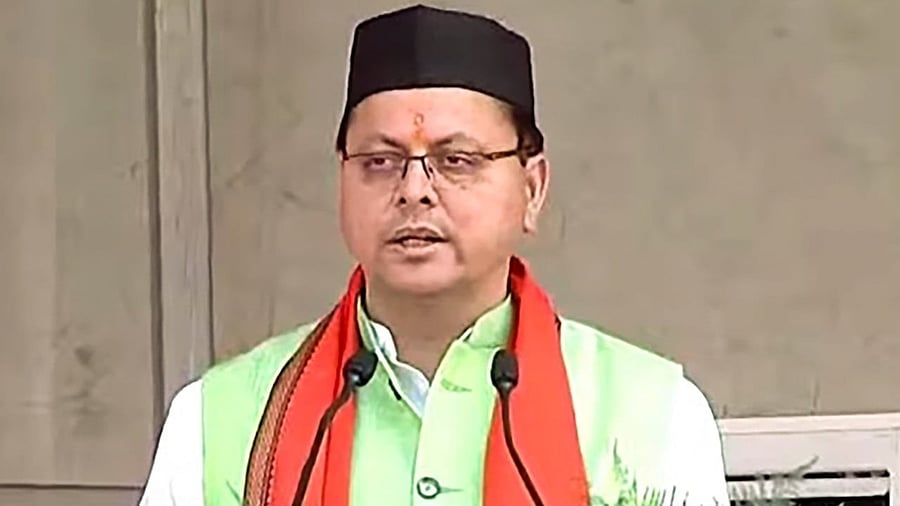
Pushkar Singh Dhami
Credit: PTI Photo
If Gujarat was once known as the laboratory of Hindutva, Uttarakhand is now known for implementing some of Hindutva’s pilot projects. The state has pioneered in recent years ideas and plans driven by strong Hindutva policies. The Assembly passed in its short session last week three controversial bills—Uniform Civil Code (Amendment) Bill, Freedom of Religion (Amendment) Bill, and Uttarakhand Minority Educational Institutions Bill. They have caused concern over the powers they give to the government to interfere in the lives of individuals and curb the rights of the minorities, especially Muslims.
The bill on the uniform civil code increases punishments with regard to ‘’illegal’’ live-in relationships. Violation of the various provisions of the law can attract jail terms of up to seven years, and the government will have the power to cancel any registration related to marriage, divorce, live-in relationships and inheritance. The law had already given policing powers to the government over citizens’ rights, including the right to privacy, and it has assumed more powers now. The Freedom of Religion (Amendment) Bill proposes to make the existing anti-conversion law more stringent. It increases the punishment for ‘’forced conversions’’ to imprisonment of 20 years or life, and expands the definition of forced conversion in such a way that any conversion can be brought under it. The bill on minority education seeks to repeal the existing law on madrasa education. It extends the benefits of minority status to educational institutions run by communities other than Muslims, such as Christians and Sikhs. All madrasas in Uttarakhand will have to seek affiliation from the state education board and then apply for minority status. They will be granted the status only if they fulfil some conditions. Unrecognised madrasas will be shut down. The government will now be able to control the functioning of these institutions.
Chief Minister Pushkar Singh Dhami has persistently carried out an anti-Muslim campaign and some madrasas were closed down even before the bill was passed. He has threatened action against so-called 'love jihad', ’land jihad’, ‘Mazhar jihad’ and ‘thook jihad’ and targeted Muslims on those grounds. Hindutva groups have also attacked Muslims and their businesses and institutions. Dhami has claimed that the madrasa law is progressive, and the first of its kind in the country. Muslim groups and organisations have protested against the bill as an attack on the minority rights granted by the Constitution. The criticism is valid, and the bills, passed in a hurry, pose a threat to individual and minority rights.
